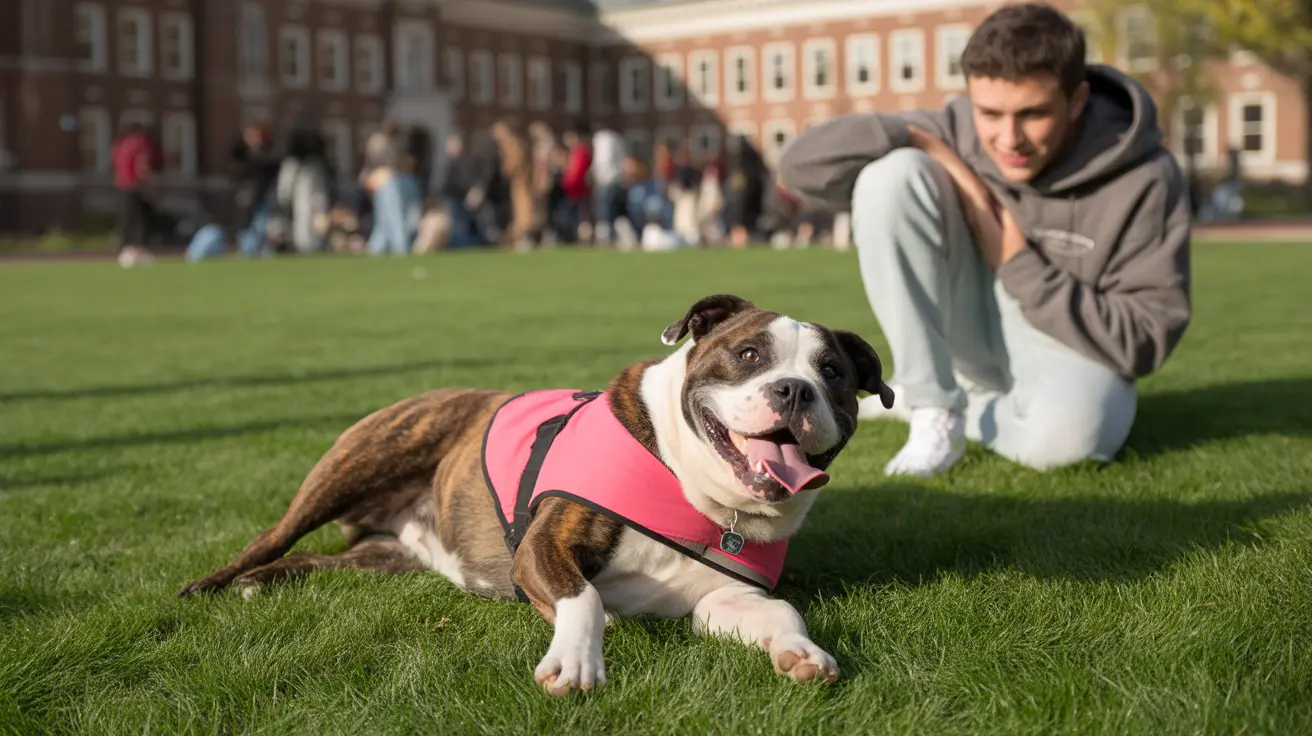For an increasing number of college students across the Pioneer Valley, emotional support animals are becoming an essential part of campus life. These companion animals are helping students navigate the challenges of higher education while providing crucial emotional and mental health support.
Most colleges and universities throughout the Pioneer Valley have embraced this trend, implementing policies that allow emotional support animals in campus housing. This growing acceptance reflects a broader understanding of how animal companionship can positively impact student wellbeing.
Understanding Emotional Support Animals in Higher Education
The presence of emotional support animals on college campuses represents a significant shift in how institutions approach student mental health support. Unlike traditional therapy programs, ESAs offer constant companionship and emotional comfort to students who may be struggling with anxiety, depression, or other mental health challenges.
Difference Between ESA and Service Animals
While both provide valuable support, emotional support animals and service animals serve distinct purposes on campus. Service animals are specifically trained to perform tasks for individuals with disabilities, while ESAs provide comfort through their presence and companionship.
Types of Emotional Support Animals Available
While dogs and cats are the most common emotional support animals in college dorms, various species can qualify as ESAs. The key factor is the animal's ability to provide emotional support and comfort to their student handler while being suitable for the living environment.
ESA Housing Request Process and Documentation
Students seeking to bring an emotional support animal to campus must typically follow established procedures. This usually involves:
- Submitting proper emotional support animal documentation
- Working with campus housing authorities
- Understanding and agreeing to care responsibilities
- Completing necessary accommodation paperwork
Managing ESAs in University Housing
ESA Rules in University Housing
Colleges typically have specific guidelines governing emotional support animals in campus housing. These rules ensure the wellbeing of both the animals and fellow students while maintaining a harmonious living environment.
Animal-Assisted Interventions in College
Many institutions are discovering the broader benefits of animal-assisted interventions, incorporating therapy dogs on campus during high-stress periods like finals week or offering regular animal interaction programs.
Frequently Asked Questions
What steps must a college student take to request an ESA for on-campus housing?
Students typically need to submit documentation from a qualified healthcare provider, complete the institution's accommodation request process, and work with housing services to ensure proper placement and arrangements.
How are emotional support animals different from service animals in terms of campus access?
Service animals are permitted in all public spaces on campus due to their specific training and legal protections under the ADA. Emotional support animals are generally limited to student housing areas and may have restricted access to other campus facilities.
Can students bring their emotional support animals to classrooms?
Access to classrooms and other campus facilities varies by institution. While ESAs are generally guaranteed in housing, classroom access is typically determined by individual school policies and specific circumstances.
Conclusion
The increasing presence of emotional support animals on college campuses represents an important evolution in student mental health support. As more institutions recognize their value, clear guidelines and processes help ensure these arrangements benefit both the students and the broader campus community.
For students considering an emotional support animal, working closely with campus housing authorities and mental health services can help create a successful partnership that enhances their college experience while maintaining a respectful and accommodating environment for all.






